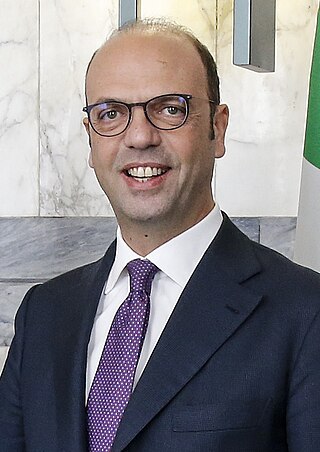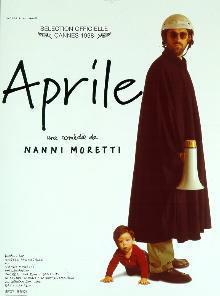Related Research Articles

Silvio Berlusconi was an Italian media tycoon and politician who served as the prime minister of Italy in four governments from 1994 to 1995, 2001 to 2006 and 2008 to 2011. He was a member of the Chamber of Deputies from 1994 to 2013; a member of the Senate of the Republic from 2022 to his death in 2023, and previously from March to November 2013; and a member of the European Parliament (MEP) from 2019 to 2022, and previously from 1999 to 2001. With a net worth of US$6.8 billion as of June 2023, Berlusconi was the third-wealthiest person in Italy at the time of his death.

Giovanni "Gianni" Agnelli, nicknamed L'Avvocato, was an Italian industrialist and principal shareholder of Fiat. As the head of Fiat, he controlled 4.4% of Italy's GDP, 3.1% of its industrial workforce, and 16.5% of its industrial investment in research. He was the richest man in modern Italian history.

Forza Italia was a centre-right liberal-conservative political party in Italy, with Christian-democratic, liberal, social-democratic and populist tendencies. It was founded by Silvio Berlusconi, who served as Prime Minister of Italy four times.

William John Emmott is an English journalist, author, and consultant best known as the editor-in-chief of The Economist newspaper from 1993 to 2006. Emmott has written fourteen books and worked on two documentary feature films. He co-founded the Wake Up Foundation, an educational charity dedicated to raising awareness of the dangers facing Western societies. He is now chairman of the Trinity College Long Room Hub for Arts & Humanities in Dublin, of the International Institute for Strategic Studies and of the Japan Society of the UK in London.

John Philip Jacob Elkann is an Italian industrialist. In 1997, he became the chosen heir of his maternal grandfather Gianni Agnelli, following the death of Gianni's nephew Giovanni Alberto Agnelli, and since 2004 has been leading the Agnelli family, an Italian multi-industry business dynasty. The family has been compared to the US political family of the Kennedys.

la Repubblica is an Italian daily general-interest newspaper. It was founded in 1976 in Rome by Gruppo Editoriale L'Espresso and led by Eugenio Scalfari, Carlo Caracciolo, and Arnoldo Mondadori Editore as a leftist newspaper, which proclaimed itself a "newspaper-party". During the early years of la Repubblica, its political views and readership ranged from the reformist left to the extraparliamentary left. Into the 21st century, it is identified with centre-left politics, and was known for its anti-Berlusconism, and Silvio Berlusconi's personal scorn for the paper. Alongside Corriere della Sera, il Giornale, and La Stampa, it is one of the main national newspapers in Italy.

Lapo Edovard Elkann is an Italian businessman, philanthropist, and socialite. He is the chairman, founder, and majority shareholder (53.37%) of the Italia Independent Group. He is also the president and founder of Garage Italia Customs and Independent Ideas, as well as a member of the board of directors of Ferrari N.V. and responsible for the promotion of the Fiat Group brand. He is the great-grandson of Fiat S.p.A. founder Giovanni Agnelli, the grandson of Gianni Agnelli, who is the former controlling CEO and controlling shareholder of Fiat Automobiles, and the brother of John Elkann.
Ginevra Elkann is a London-born Italian film producer and director, heiress and socialite. She is a member of the Agnelli family and granddaughter of Italian industrialist Gianni Agnelli.

Angelino Alfano is an Italian former politician who served as Minister of Foreign Affairs from 12 December 2016 to 1 June 2018.

April is a 1998 Italian semi-autobiographical film directed by Nanni Moretti. Moretti also played the central character, a filmmaker who has to deal with Italy's political situation, his own goals as an artist and becoming a father.

Renato Maria Giuseppe Schifani is an Italian politician who has served as the President of Sicily since 13 October 2022. Born in Palermo, Schifani was a prominent member of the now-defunct centre-right People of Freedom (PdL) and served in the Italian Senate from 1996 to 2022. He then joined the New Centre-Right (NCD) party in 2013 but left it in 2016 for Forza Italia (FI), the PdL's successor. From 29 April 2008 to 14 March 2013, he was President of the Senate.

Carlo De Benedetti is an Italian industrialist, engineer, and publisher. He is both an Italian and naturalized Swiss citizen. He was awarded the Order of Merit for Labour by the Italian state in 1983, the Medaglia d'oro ai benemeriti della cultura e dell'arte and the Legion d'Honneur in 1987.

The political career of Silvio Berlusconi (1994–2011) began in 1994, when Berlusconi entered politics for the first time serving intermittent terms as Prime Minister of Italy from 1994 to 1995, 2001 to 2006 and 2008 to 2011, his career was racked with controversies and trials; amongst these was his failure to honour his promise to sell his personal assets in Mediaset, the largest television broadcaster network in Italy, in order to dispel any perceived conflicts of interest.

Annalisa Piras is a London-based Italian-British film director, impact producer and journalist. She is currently the director of Springshot Productions, an independent production company which specialises in hard hitting, current affairs documentaries. She also directs The Wake Up Foundation, an educational charity she co-founded with Bill Emmott, former editor of The Economist. In 2019 The Wake Up Foundation founded and run the first Wake Up Europe Impact Films Festival, the first ever transnational impact documentary festival entirely devoted to showcase the best films produced worldwide to highlights the shared challenges our western societies face, with a special focus on the meaning of a European civic conscience. The Wake Up Europe Festival offered a "selection for reflection" of 10 films, which were screened and debated in Turin, Italy and across other nine European locations.
Silvio Berlusconi (1936-2023) was an Italian media mogul and Prime Minister of Italy who owned the largest broadcasting company in that country, Mediaset. His promises to sell off his personal assets to avoid conflicts of interest were never fulfilled, which sparked controversy throughout his terms in office. Berlusconi is a controversial figure in modern Italian politics: his tenure as Prime Minister was racked with scandalous sex affairs and poor judgement and decision-making. These events were widely covered by the media, drawing outcry from many of his Italian contemporaries and worldwide counterparts.
Marco La Villa and Mauro La Villa are identical twin brothers who are directors and producers based in New York City.

Forza Italia is a centre-right political party in Italy, whose ideology includes elements of liberal conservatism, Christian democracy, liberalism and populism. FI is a member of the European People's Party. Silvio Berlusconi was the party's leader and president until his death in 2023. The party has since been led by Antonio Tajani, who had been vice president and coordinatior and now functions as secretary. Other leading members include Elisabetta Casellati.

Fiat Chrysler Automobiles N.V. (FCA), now part of Stellantis, was an Italian-American multinational corporation primarily known as a manufacturer of automobiles, commercial vehicles, auto parts and production systems. At the time it was the world's eighth largest automobile maker. The group was established in 2014 through the merger of Chrysler Group and Fiat S.p.A. Its corporate headquarters were domiciled in Amsterdam and its financial headquarters were in London. The holding company was listed on the New York Stock Exchange and Milan's Borsa Italiana. Exor, an Italian investment group controlled by the Agnelli family, owned 29% of FCA and controlled 44% through a loyalty voting mechanism, the largest block of shares.

Alessandro Di Battista is an Italian politician, activist and writer, deputy of the XVII Legislature of the Italian Republic. He was part of the Five Stars Movement from 2009 to 2021. He left the movement in February 2021 because he was against the formation of the Draghi government.

Antonello Zappadu is an Italian photo reporter and publicist, known for his important part in some events regarding Sardinian "bandits". Furthermore, he became famous having infiltrated the safety cover of Villa Certosa, residence of president Silvio Berlusconi. He published some photos of the "Villa".
References
- ↑ "London premiere of Girlfriend in a Coma" . Retrieved 22 April 2013– via YouTube.
- ↑ "Lettre d'amour désespérée à l'Italie". www.lemonde.fr. Archived from the original on 10 July 2017. Retrieved 26 March 2013.
- ↑ Davies, Lizzy (1 February 2013). "Film-maker accuses Italian government of censorship after premiere is called off". The Guardian. London. Retrieved 1 February 2013.
- ↑ "Il film di Emmott non deve essere censurato". Change.org.